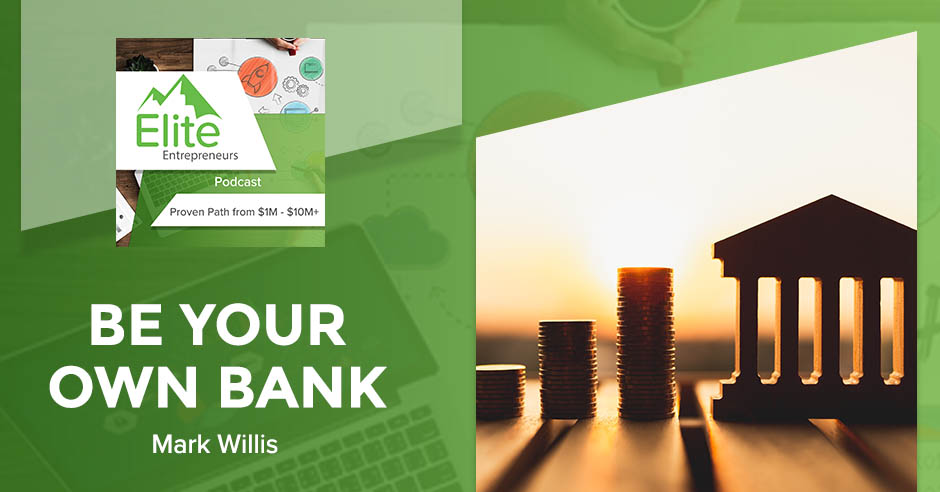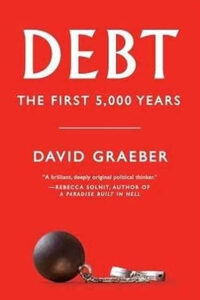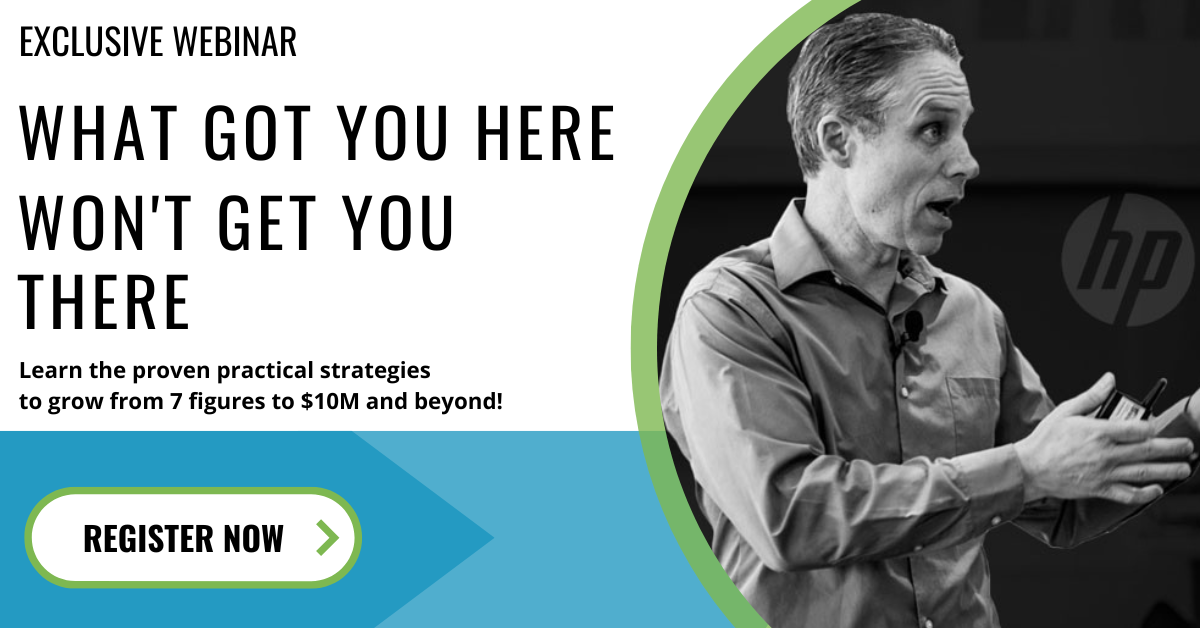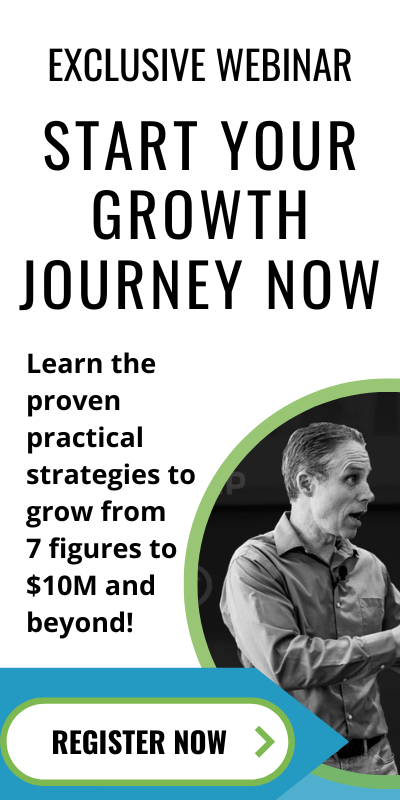Episode 83: Be Your Own Bank, With Mark Willis
What You Will Learn:
- Why one of the most important lessons you can learn about money is that where you keep it makes it do different things
- How Mark helps seven-figure business owners reframe the way they think about money, and how that can help you create certainty for yourself and your business
- How Mark teaches business owners to “be your own bank” and stop paying high interest and fees to financial institutions
- How particular types of whole life insurance policies can become a financial vehicle that you can borrow against with no penalties, with examples from Mark of how it works
- Why writing a contract with yourself can be a powerful motivator to push you to keep working toward your own success
- Why a whole life insurance policy is a superior way to store your money over a 401K, an IRA or a bank account
- Why Mark is passionate about working with business owners, and why too often business owners don’t diversify their portfolio outside their business
- Why it is important to balance your investments in a high-risk asset with investments in a safe, predictable, liquid account like a whole life insurance policy
- Why thinking differently about your money and learning to be your own bank is crucial, and why much of the financial advice you can get is often wrong or shortsighted
- Why surrounding yourself with the right people, the right coaches and advisors, and the right peers is crucial for empowering yourself and getting the support you need
About Mark Willis
“We’re all in the banking business, just on the wrong side of the desk.” – Mark Willis is a man on a mission to help you think differently about your money, your economy and your future. After graduating with six figures of student loan debt and discovering a way to turn his debt into real wealth as he watched everybody lose their retirement savings and home equity in 2008, he knew that he needed to find a more predictable way to meet his financial objectives and those of his clients.
Mark is a CERTIFIED FINANCIAL PLANNER™, a THREE TIME #1 Best Selling Author and the Owner of Lake Growth Financial Services, a financial firm in Chicago, Illinois. Over the years, he has helped hundreds of his clients take back control of their financial future and build their businesses with proven, tax-efficient financial solutions. He specializes in building custom-tailored financial strategies that are unknown to typical stock-jockeys, attorneys, or other financial gurus.
As co-host of the Not Your Average Financial Podcast™, he shares some of his strategies for investing in real estate, paying for college without going broke, and creating an income in retirement you won’t outlive. Mark works with people who want to grow their wealth in ways that are safe and predictable, to become their own source of financing, and create tax-free income in retirement.
Resources:
- Website: growmorewealth.com
- Website: http://lakegrowth.com/
- Facebook: facebook.com/lakegrowth/
- LinkedIn: linkedin.com/in/marklakegrowth/
- LinkedIn: linkedin.com/company/lakegrowth/
- Twitter: @LakeGrowth
Additional Resources:
- Elite Business Health Assessment: https://growwithelite.com/health
- Email: info@GrowWithElite.com
- Website: https://growwithelite.com/
—
Listen to the podcast here
I feel like I’m saying this every time, but I am genuinely excited to have our guest, Mark Willis. He’s the Founder and CEO of Lake Growth Financial Services. They are based out of Chicago. Mark, I didn’t ask you this, but I assume you service more than just the greater Chicago area. You probably serve business owners across the country. Why don’t you tell us a little bit about Lake Growth Financial Services, who your target customer is, and where you are serving customers? We will get into our interview. Welcome to the show.
Thanks. I’m glad to be on the show. It’s a nationwide revolution, and we are proud to be a part of it with hundreds of clients around the country from Alaska to Maine, Hawaii, and Florida, all around. Even folks up in Canada and throughout the world. We primarily work with folks around the United States. Given that, we specialize in working with people who want to become their source of financing, who are ready to fire their banker and take back control of their future with not-so-average financial strategies that are not the typical average ways. People usually park their cash. Specifically, for business owners that are tuning in to this show who know that they need fuel. They need to have cash ready to rock and roll for their investing in their business and future.
That’s a great intro. This will be a good opportunity for me to remind our audience that they have three roles as the CEO. They are all trying to make this transition from a scrappy, superhuman entrepreneur who does everything to now figuring out, “I got to organize work, build a team, and relinquish control.” They are at various stages of that journey as we all are. We talk about it all the time, three hats that they have. They have got to set the vision. Nobody else owns the strategic direction of their business. They have to own that, even if they involve others, and they should involve others. They have to maintain ownership of that constantly setting the vision.
The second thing they do is to build the team to make that real. The third hat that they are going to wear, is what we are going to talk about now. They must secure fuel for growth. They have to ensure that their business’s future is going to have fuel that needs to continue to operate. We want that runway to be as long and as fresh with cash as possible.
You are right, a lot of us have traditional ideas about how to secure access to lines of credit. How to get loans or maybe go raise some money so that we can continue to grow our businesses. I love that you have come up with ways of thinking that are different. I’d love to get into that now. What do you tell seven-figure business owners about how to think about money in a different way than what they usually hear?
Where you keep your money makes it do different things. That’s such a basic, simple statement. I didn’t grow up learning about the 450 different parking spots where we can put our money. I tried to keep up with it as I went through my certified financial planning designations a few years ago. It was tough to keep track, like a long list, 400 plus places to put your money. You can combine them to make infinite strategies. Savings account, 401(k), real estate, annuities, and dynastic trusts. It gets complex very fast.
You put real estate and investments together and you have things like real estate investment trusts. Everyone who comes to us very often, whether over Zoom or the phone, has been saying to me, “Where do we put our cash so that it can stay available to us amid this pandemic and post-pandemic? Where can it grow productively, where we can ensure that at least this portion of our money will be available to us in the future and now without penalties, taxes, and onerous regulations?”
Did any of us think that years ago we’d be talking about rent controls, rent moratoriums, and everything that we have all gone through these last few years, the oxygen of cash is what sustains the business that’s still here to read this. It’s unfortunate to say how many businesses have shuttered over the years. We all know that the statistics are real. I would say that it has less to do with your passion. Passion can only buy so much inventory and team even while crucial is only as good as the people’s capacity to finance and operate the business. It comes down to what are you doing to secure your financial future.

Financial Future: Passion can only buy so much inventory. It is only as good as the people’s capacity to finance and operate the business. It all comes down to what you are doing to secure your financial future.
We work quite a bit with business owners who are interested in ensuring and even writing a contract with their future. What if you had a financial strategy where the outcome was determined before you even began the process? Wouldn’t that be cool? With as much risk as it takes to start a seven-figure business or any business, there are a lot of unknowns, as you know. Wouldn’t it be nice if at least part of your financial portfolio included in it, an element of your business that was guaranteed to be there for you when it was time to pull that golden parachute rip cord or for your next big equipment purchase?
I had a guy that’s out in a desert state here in the United States. He does a lot of construction, and he gets loans from the bank for the backhoe, the excavator, or the large equipment that he needs to buy. Guess what? Most of his profits, and his hard work goes to the bank in the form of interest. He was sick and tired of watching the profit leak out of his business and into the pockets of the bank. It’s why banks have the biggest buildings in town. They always have. He was concerned about that, it’s his hard-earned money. It’s his livelihood going out the back door to the bank.
We talked about a strategy where he could become his source of financing. He fired his business line of credit banker and became his line of credit where he could pay himself the interest, the capital, and the profits that were going to the banks, the lines of credit, and the finance companies. Recapturing that interest will allow him, just like it’s helped many of our other clients to take back control of their future, pay off policy loans on their terms, and give them something that they can count on for years ahead. That’s one of what we are hearing across the landscape as we meet with business owners.
You said something that didn’t just pique my curiosity, but I know is intriguing to the audience. You said like, “How would we stop paying interest to an outside financial institution and begin to be our banker?” It feels like I would have to have come up with this chunk of money that I needed. That’s why I went to them in the first place, and I agreed to those terms to pay the interest because I needed the cash to grow my business. How does that magically show up for me to be able to be my banker? I know it’s not magic, but tell us a little bit more about this process of becoming our banker and stop paying interest to somebody else when you can keep your profits.
The average business owner spends about a third of their profits or revenues, I should say. According to the US Commerce Bureau, a third of their business revenues goes to servicing interest payments, not pay down, just servicing the interest. It’s like eating, it’s not so much the rate, it’s the volume that kills us. It’s not the rate at which I eat my lunch. It’s the volume of food that will determine my waistline.
The same is true with our low-interest lines of credit at the bank. Many of us might have zero-interest credit cards, low-interest mortgages, or low-interest car loans. It’s the volume that wipes us out because we could be spending a third of our revenue on banks and not even realize it with how low interest rates are these days. Banks love it because they can do something called fractional reserve banking, where they create money out of nowhere, which we will say about maybe another episode. How do they do it? How can we, mere mortals do what the banks do?
There’s an old phrase, “Don’t do what banks tell you to do with your money,” i.e., savings accounts, 401(k)s, and IRAs. Instead, look at what they are doing with their money and go do that. Let’s look at what banks do with their cash. According to a study, Bank Owned Life Insurance is part of the tier-one capital. Over several hundred billion dollars are held in life insurance contracts as a storehouse for the bank’s tier-one capital, which is their safest asset class. If you ask a bank, “Where do you put your money, Mr. Bank?” They all keep it in high cash value, whole life insurance contracts of all places in the financial universe.
Don’t do what banks tell you to do with your money. Look at what they are doing with their money and go do that instead. Click To TweetIt was shocking to me when I heard this. For the audience, just search for Corporate Owned Life Insurance and Bank Owned Life Insurance to see more of what I’m talking about here. If banks are putting all this money into these very rare, old-fashioned, and stodgy life insurance contracts, maybe we should take another look. My problem was I was hearing Dave Ramsey in my head, describe what he thinks whole life insurance is. All I can say is what banks are doing is not what Dave is talking about, not by a mile.
When I started to look into how banks designed their whole life policies for their executives, key employees, and balance sheets on their business, it was quickly apparent how they use the banking function for themselves and how every business owner listening could also be their banker as well. I will quickly say this then I will hush and get off my soapbox. The cash value of life insurance is a liquid current asset on the balance sheet of any business. If I have $1 million, $100,000, or $10,000, whatever my number is in cash value, that is a strong asset on my balance sheet that I can use for my business or even my personal life.
Let’s say, I have $100,000 of cash value, that $100,000 of cash value is liquid and accessible fuel to grow my business. Back to your three key jobs. That $100,000 could be my line of credit to my business, and I can use that money like cash, and I can even borrow against that money in the policy. It will continue to grow compounding as if I had not borrowed against the cash.
Let’s say, I had $100,000 in cash and I borrowed $30,000 to go get a company car. Even though I’m driving my company car around town, my policy will continue to grow guaranteed on the entire $100,000 as if I hadn’t bought the car. That is what banks do. Their money is doing multiple jobs at once. We can do that if we have the right contracts and the right financial parking spaces.
We have got 400 places to choose from. Which one is the best suited for your business? I don’t know, not knowing everybody who’s tuning in. If you want guaranteed growth on your cash, if you want liquid access to capital for any reason, whether it’s fixing up your kitchen, investing in your business, sending your kid to college, or going to Disney World, you can use the cash value in the policy for any purpose.
To me, that provides a sense of stability and predictability that I’m going to have a big bucket of money for my business needs inventory purchases. I had a client who runs a very successful seven-figure Amazon business, and they were spending $4,800 a month just on interest payments to Amazon Lending and Payables.com. Some of these other outfits that are sucking profits off the backs of eCommerce business owners. They moved a large portion of their liquid cash into a policy, several hundred grand went into a policy, and now they are operating their entire business on their policy. They said sayonara to all their other credit institutions, and they are getting to keep all that profit.
That’s one sliver of an example of how this works in the real world. It starts with the mindset that you have to cast a vision on your employees and your customers. You also have to cast a vision within yourself that it is possible to be your source of financing to sit behind the banker’s desk, rather than always having to beg the banker for your next pile of cash.
We have a little mastermind group, and we were talking about the way that we go to banks typically with hat in hand. “Banker, can you please help me out? I’m in need right now.” Meanwhile, the person putting their hat out to get some help from a bank and struggling to do it is sitting on $9 million of receivables every year. They are bringing in cash, they are an asset to the bank.
We had this great conversation about how we can shift our position and our mindset going into the bank saying, “I’m shopping around to see who wants access to all of these receivables, all these deposits that I’m going to bring to a bank.” Just that shift allows us to be more in the driver’s seat in those conversations instead of a hat in hand and hoping that somebody will listen to me and provide me with some financing. That’s not what we are here to talk about.
Someone once said, “Always be the buyer in all parts of your life. Don’t feel like you ever have to walk hat in hand.” When you don’t have access to cash and you are out of luck, the receivables are only as good as the relationships you have with those customers. Banks are a funny lot. Mark Twain has a great quote. He says, “A banker is a fellow who will lend you his umbrella when the sun is shining, but wants it back as soon as it starts to rain.”

Financial Future: The receivables are only as good as the relationships you have with your customers.
There’s a client who’s out on the West Coast. He runs a very successful seven-figure business. I believe now it’s moved up to eight figures. He had a line of credit with the bank for $1 million, and he operated everything. Sales guys were traveling with it, the whole thing was operated off that line of credit. 2008 happened, and wouldn’t that be it, the bank termed out his loan. He didn’t have the $1 million to give them, but he had five years to come up with the cash. They termed it out over five years. He said, “I’m done with banks. I never want to see the inside of a bank ever again, except my monthly deposit receipts.”
What we did was set up a life insurance cash value policy. We call it A Bank on Yourself-Type Whole Life Policy. We funded it for five years and got it up to $1 million. He was having to pay down the bank and fund his bank, in essence, over those five years. Now he runs his entire business through that policy, rather than through the bank down the street. When banks pull the rug out from under us again, he will be the only guy in town who doesn’t hat in hand. He will have his guaranteed line of credit to himself. Guess what? He will probably be offering loans to his competitors amid the next downturn. What a great way to add a revenue stream.
What we have already shared has been incredible. I’m sure the audiences are still thinking, “How’s this done? How do we flip from owing now to being in the driver’s seat?” We could go on and on with examples from your real clients. What else would you say to business owners who are trying to make this mind shift from, “I have to rely on other people for money,” to, “I can rely on myself for money.” That’s a shift.
I’m thinking back to that famous story of Jim Carrey in the late ‘80s. He writes himself a check for $10 million. Have you heard this?
I haven’t.
Jim Carrey, a famous comedian, and tons of movies. Many people might have heard of him. He was a nobody from Canada in the late ‘80s. He wrote himself a check for $10 million for acting services rendered. That’s what he wrote in the memo line. He put a date on it for five years or whatever in the future. He couldn’t just cash that check. He wrote a contract with himself. He did. That’s what a check is, that’s a contract with his future.
You think about nature, it writes a contract with its future. Every acorn has the DNA contract of an oak tree baked right inside, but it must have a relationship with the environment. Jim Carrey needed the relationship to build the team of people that would help him sign that deal with himself. The acorn needs water, sunshine, and soil to build the contract into a reality. We all need a good team of people and a vision to get to where we want to go. It takes the contract first for anything else to happen. Write yourself that contract.
Entrepreneurs need a good team of people and a vision to get to where they want to go. Click To TweetI’m not talking wishy-washy, woo-woo contracts. I had to use that banking strategy again. The whole life contract says, “Every year for the rest of my life, here’s my net worth. It’s going up every year no matter what the market’s doing. It is guaranteed to be more valuable this year than it was last year. I still need relationships with people so I can fund my future, and I can pack money into my policies. The more money I pack into that policy, the more is available and liquid and accessible for my personal life, my family, and my business life.” It’s a relationship business. All of us are in the relationship business, no matter what your business is. You need a parking space for your money to go.
I can’t bring that miracle to this conversation. You guys are smart enough to know, you have made it this far in your business. You know how to make money. Now the question is, where are you going to keep it? If it’s going into 401(k)s, IRAs, or a banker’s pocket, it’s out of your control. The contract has no guarantees. If you put it into a 401(k), a SEP IRA, or even worse, a line of credit where you are paying interest to a bank. There’s no control and no guarantees except that the banker would get paid and the investment advisor who’s holding that 401(k) gets paid. Our hopeful job is to partner with our clients to get out of their way and let them write a contract with their future. I hope that answers some of your questions. Would you want to go deeper there or in a different direction?
No, that’s a great way to talk about it. Let me play it back since I’m the newbie here in this conversation. What I hear you saying is you become the person who scripts what that future’s going to look like. You write that out, you are the creator, you do it by design, and then you structure the parking spot. You structure your use of funds on an ongoing basis to be able to live into that future, and you don’t do it alone. You were very right on that point. You organize relationships to be able to make this happen, but it’s a very intentional approach to creating the future that you want. I like the story of Jim Carrey. He wrote himself a check in the future. You are saying that’s possible. We can all do that.
We can. He had no guarantee but he had the vision. He set about to find the right team to make that a reality where he did have the money. You probably find it on YouTube talking about it to Oprah. The key here is he did, he embodies all three things that you describe on this show. He had the vision. What confidence do you have to have to write that check like that?
He kept it in front of him every day, so he didn’t just put it away or give it to somebody else. He built the team of people around him and made that check a reality by fueling his growth with one deal after the next, one comedy club after the next until he was Ace Ventura: Pet Detective or whatever. That’s one example. We can all do that with guarantees built in if we know the right places to go.
Super fascinating because we are always teaching people to be intentional with the creation of their business. Here’s a purpose-driven values-based business. We build a team around it and we have big lofty goals that we are up to. We do this whole thing around the business, but not specific to our finances. There are a lot of financial goals inherent in the process. Using that same discipline of being intentional and structuring everything to make the reality happen, it sounds like that’s what you have been doing for business owners in connection with their business for however long you have been doing that. That’s cool.
I notice when I meet with business owners that quite often they are very proud and rightfully so of what they have designed, and what they have built. The incredible tenacity and resilience of a business owner, it’s one of the reasons why I love working with business owners. Half of our clients are business owners. Another chunk is real estate investors.

Financial Future: The incredible tenacity and resilience of a business owner are two of their most notable characteristics.
I love the folks who are saying, “I don’t want a W-2. I don’t want one boss telling me how to live my life.” That gets me out of bed to work with folks like that, so cool. What I have noticed, however, is that too often, as a certified financial planner, my goal is to help diversify the portfolio. Unfortunately, business owners have two large chunk in one asset, their portfolio and their net worth is their business.
They carry it around with them always. It’s a burden on their back.
It’s a high-fee job, which is what it is for a lot of folks, especially at this stage in the entrepreneurial journey. If you don’t do it right, you have got yourself the most expensive job you have ever bought. What Brett is doing and such a great job doing is helping you guys say, “It’s who, not how.” The book Dan Sullivan wrote was great here. “Who can help me build this business? Not how can I do it.” If I find myself trying to code my website, it’s going to stay under construction forever.
If I find the right people, to get that job done, it’s going to be a dream come true better than I could have done it. It’s going to be done faster, and more efficiently, and I can free myself up to do the vision casting and more. I’m so with you on that. I’d say there’s a strategy in financial planning, it’s called the Barbell Strategy. The idea here is you have a high-risk asset on one side of your barbell and a super safe, predictable, and liquid asset on the other side of the barbell.
If you can find the right people for your business who can get the job done, it will be a dream come true. Click To TweetWhen you have got much of your money inside a safe, predictable, liquid asset, it can be used to fuel the growth of the risk asset on the other side of the barbell. What I’m talking about is these whole life policies combined with your business. When you have both, it’s like nitro and glycerin, peanut butter and jelly, Thelma and Louise, Batman and Robin, they work great together better than they would on their own. Whole life insurance, boring single-digit returns after tax, 5%, whatever. It sure beats my savings account, I guess.
That safe, predictable, liquid account coupled with my business, now we have got rocket fuel, we can lift off the Launchpad, and get out into orbit. It’s an absolute thrill to get to work with business owners. It’s the mindset that I find that gets me out of bed in the morning to work with folks who want to take control of their financial future.
I love the way you are talking about that because everybody here has built this thing. They have created it, which is why they are amazing. They have created this thing, and then in many instances, we become prisoners to the thing that we have created and we stop creating. We get into more of a reactive stance to it. We are a little bit more on our heels instead of on the balls of our feet to use more of a sports analogy.
At first, they were all creative. We were all creating, and then we created something that could imprison us if we were not careful. In this case, we are talking about our financial future. Whether it’s the business or the financial future or the relationships you want at home, we start going through the motions or keeping the thing that we have created going, we just get in it. That’s when you hear things like the hamster wheel or whatever. That usually gets applied to people who go and work in big buildings. In corporate America, they talk about that rat race or hamster wheel.
If we are not careful, even as entrepreneurs, we can create our little hamster wheel. That’s not serving us or any of the people who are used to benefiting from our creations. This group of folks are the most creative people on the planet. They might think of themselves as creative because we think of art or music or whatever, but they are creating real value that affects a lot of other people.
When they stop creating value, because they get stuck in their creation, it does a ton of disservice to everyone. Sorry, I got on my soapbox a little bit there, but what you are talking about is a way to break out of that again. Don’t be subservient to banks and servicing interest and to whatever else. Let’s find a way to get back to creating the future that we all wanted when we started this in the first place.
Banking is not wrong or right, it just is. There’s an old book David Graeber wrote a few years ago. It’s called Debt: The First 5,000 Years. That is a long time for banking to exist. I bet that banking outlasts the iPhone. I bet it outlasts Apple. Banking will still be around once Tesla is gone. Banking is going to be about, as fundamental to the human experience as parenting is. It’s as old an institution as friendship. That’s how old banking goes back. If you go back to the beginning of what debt is.
My guess, is we either can be the banker or we are going to get banked. I would prefer to be a banker. You can take the banking in-house, but you have to think differently. That’s what you are describing. It’s like financial jiu-jitsu. When you have an enemy coming at you, you can either let them punch you in the gut, or you can somehow find a way to convert their energy into a force to defend yourself and to push back. That’s the power of jiu-jitsu with your money. If you could take the problem of banking and make it a solution, then all of a sudden everything else becomes unnecessary. It becomes easier to do.
I don’t care what my client’s 401(k) did last quarter, because I know that they are getting way better out of funneling the profits of their business through their policies, and then using that as their line of credit to their business than anything their mutual funds could have done. Sometimes the 401(k) will be up and sometimes it will be down. Their CPA loves that SEP-IRA for the tax deduction now, but it’s going all get taxed in the future.
That doesn’t sound like freedom to me to get taxed in the future years from now when taxes might be twice as high as they are right now. I’d rather put my money where it’s safe, predictable, liquid, and if we design it right, it’s an available income tax-free in retirement. I can use it for my business right now when I need it the most.
That to me sounds like financial jiu-jitsu. Yet you have to think differently. You cannot just accept what the radio hosts or what the banks are telling you to do with your money. You have to be weird in a good way, which is what I think business owners have already figured out. If we were going to be normal, we’d all gotten our W-2s and checked out a long time ago, but we decided to be weird, not so average in a good way. We are in good company, I guess is what I’m saying.
We all know what weird is, so you are right. We are in good company.
I will use the word elite. How about that? I like that better than weird.
Just for your benefit, and sometimes newer audiences might not know this as well, the reason we call it elite is that there are so few that ever get to seven figures. It’s not that we are elitist, we don’t think we are better than anybody. It’s rarefied air here. We are talking 3% to 5% of businesses that ever start to make it to a million, that’s pretty elite.
You have to learn some things that might be a little weird because it’s not normal to the 97% of people out there who don’t know what it’s like to be where you are. We are trying to bring expertise like you to this group of weird and elite people who are figuring things out that most people don’t have to figure out.
What got you here, won’t get you there. Find people who are weird in the way that you want to be weird. Go hang out with them. Hang out with people who remind you of your future, not your past. You will begin to rub off. They will rub off on you, you will rub off on them. It’s a mutually beneficial relationship there. Hang out with people who remind you of your future rather than your past.
Hang out with people who remind you of your future instead of your past. Click To TweetIt’s the bucket of crabs analogy too whenever you are trying to get out of a bucket, but all your buddies are pulling you back down you are not going to go very far. Hanging out with folks like Brett and learning to think differently with your money, your business, your economy, and your future. Everything becomes easier when you have a good team of people and the wind at your back.
Our elite entrepreneurs, whether or not they are part of our programs, the people tuning in here, the seven-figure business owners know what it’s like to keep doing the same thing. Some of them have been doing the same thing for a while. They know exactly what it produces. It’s predictable. It’s ironic that the people who took a risk put their shingle out there, opened up a business however many years ago, and created something from scratch, are sometimes now tired of that journey because they haven’t built it in a way that gives them any freedom. They end up settling back into a place where they are comfortable and talking about weird things or something new feels like that’s tiring.
That’s effort, that’s whatever. They stay where they are at. If you have gotten yourself to a place where you are comfortable where you are at, that’s fine. I’m not against comfort. I like comfort. If you still haven’t realized your dreams of freedom, whether that’s freedom of time, of money, or both, then you can’t just keep doing the same thing that you are doing now. You have to do some new things.
There are these stages that we have learned and talked about on the 1s and 3s of revenue. The $1 million to $3 million journey. There’s something different. You triple in size, and you have to figure some new stuff out. 3 to 10, same thing. These shifts are all about figuring out what’s at the next level, surrounding yourself with the people who know what to do there, who have been there, and making some changes. Sometimes human beings like to just stay where they are. It’s difficult.
Homeostasis and the idea of stagnation and comfort. The idea of homeostasis, complete balance, biologically speaking is the word for death. To take your point to the very end there, if you are just going to live where you are, if you are going to comfortably sit, soak, and sour, I’m sorry, but you are going to go down. The universal law of entropy works in our bodies, and it works in our business just as well.
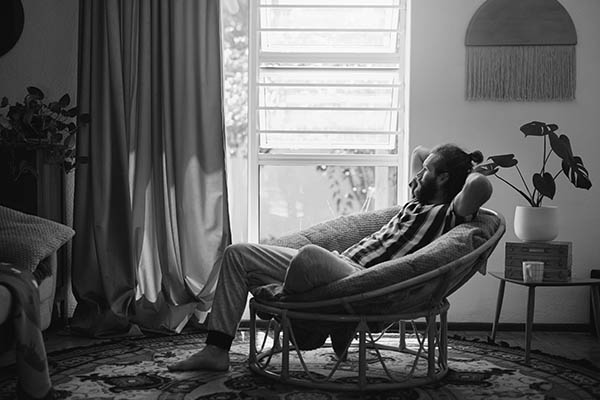
Financial Future: If you will just live where you are and comfortably sit soak and sour, you will eventually go down.
You have to fight against entropy, against gravity. Otherwise, these things are going to take over. The way the world does it, the way nature does it from the smallest DNA strand to the largest galaxy arm is a contract. It has a contract with its future. It says, “I’m going to become an oak tree. I’m not going to decay in this soil. I’m a little acorn, but I’m not going to stay that way. I’m going to transform.” You have to do weird things like start growing roots out of your butt and start growing arms. That’s weird. Caterpillars, butterflies, we could take this on and on.
The power is what are the people of your future doing with their cash, business, family life, fitness, and faith all the different parts of your life. Hang out with people who remind you of your future, not of your past. Otherwise, you are still just going to be in that bucket of crabs. Find a way. In my case, the big change, the a-ha moment was taking back control of the banking function in my business and my family life.
My kids’ college, all the cars I’m going to buy, the houses, the real estate. It’s better than paying cash when I use my policies because it continues to grow even when I access the cash. That, to me, beats paying cash, because when I pay cash for something, it drops in value. My savings account doesn’t pay me interest if I spend it. When I use the policy, it continues to grow compound. To me, that’s changing the game, that’s taking back control and using the bank’s own game to my advantage, rather than them using their game for their advantage against me.
Thank you so much for your insights and your time. We are always advocating. Set the vision, build the team, and secure that fuel for growth. You have given us an important thing to think about, a new way to think about becoming our banker. There’s no way on an episode, to get into all the detail of how to do that. If people want to learn more, if people want to connect with you and learn about Lake Growth Financial Services, what’s the best way to connect?
We have a short hello page. You can go to Bit.ly/quickboy. BOY stands for Bank On Yourself. Head there and we can say hello. You can either check out our podcast, which is not your average financial podcast. There’s a link there. You can get on my calendar and say hello for fifteen minutes to answer some questions if you’d like that.
Thank you for being our guest. Appreciate your insights. For everybody, please share with other folks. Other people need to read this. We are completely dedicated to helping seven-figure business owners figure out this journey. All of us want to have more of our own money in our pockets, and we want to have more control of our future is what it comes down to. Thanks for tuning in. Please share, review, and like do all those things. Come again next time for another episode.
Important Links
Want to listen to more? View all episodes here >

